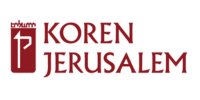

Interested in learning some halakha (Jewish law) in English? Check out some of Maggid Books' collection of English language halakha books! We have even more options available in Hebrew on our website.

The Laws of Cooking and Warming Food on Shabbat is a comprehensive presentation of hilkhot bishul and the reasoning behind the laws. In this wideranging volume, Rabbi Mordechai Willig presents and analyzes the opinions of the most respected voices in halakhic discourse. He traces the law from the biblical prohibition to rabbinic legislation, and from medieval authorities to decisors of our time. Exploring new issues involving present-day applications and the impact of modern technology, The Laws of Cooking and Warming Food on Shabbat encompasses the range of complexities and challenges of this central area of Jewish law. It is a crucial resource for laymen, students, and scholars alike.
Includes sections on:
• The Definition of Cooking • The Status of Liquids
• Cooking with Solar Heat • The Non-Jew in the Shabbat Kitchen
• Blechs, Hot Plates and Timers • Improperly Heated Food
• Leaving, Placing and Returning Food to a Fire
by: Shlomo M. Brody

Abortion, stem-cell research, conversion standards, female rabbis, DNA testing, animal cruelty, civil marriages in Israel. While today's most hot-button halakhic issues elicit strong opinions on all sides, few understand the halakhic origins of their views, their historical development or social implications. Without fully grasping the issues at hand, respectful dialogue between conflicting opinions becomes impossible. In A Guide to the Complex, Brody presents over 130 of the most provocative, controversial topics in Jewish law today. The book s concise, articulate essays, based on the author's popular Ask the Rabbi column in The Jerusalem Post, cite sources and scholars from across the ideological spectrum in an effort to increase respect for the diversity of voices of the halakhic dialogue. This compendium of highly relevant essays gives an accurate picture of the legal, historical, and sociological factors that are fundamental to understanding halakhic debates.
by: Rabbi J David Bleich

Judaism is unique in that one of its greatest mizvot is the study of Torah for its own sake. The contemporary student of Halakhah enjoys the encounter not just with the practical questions of today, but with the questions that will arise tomorrow. In this latest volume of Contemporary Halakhic Problems, Rabbi Bleich provides lucid summaries and analyses of classic halakhic questions alongside pioneering applications of Jewish law to current social, political, technological and religious issues. Covering topics such as -stem-cell burgers -entering a non-Jewish house of worship -video surveillance -medical and cosmetic tattooing -laser circumcision -posthumous paternity -vaccination among others, the essays in this book cover some of the most intriguing questions of our time. Rabbi Bleich, a distinguished scholar, bioethicist and one of today’s most respected halakhists, outlines the issues, brings the opinions of various halakhic decisors and explains the basis of disagreements between them.

In False Facts and True Rumors, Rabbi Daniel Feldman undertakes the vital task of examining the halakhic sources regarding lashon hara, derogatory speech, and applying them to today’s technology-driven world. Combining erudite knowledge of rabbinic texts, philosophy, and psychology, Rabbi Feldman explores this uncharted territory of contemporary Jewish life. Among the questions addressed are: How can it be prohibited to convey facts that are true? How can the innocent be protected and society improved in the context of these laws? How do these laws affect areas such as dating and marriage, therapy, business interactions, and comedic performances? How are modern conceptions of privacy and confidentiality impacted? How has the culture of journalism, the Internet, and political campaigning affected, and been affected by, these laws? False Facts and True Rumors offers an essential guide for communicating in today’s fast-paced world, where important information and petty gossip alike are exchanged instantaneously.
by: Rabbi Pinchas Cohen

This concise and useful work on hilkhot kashrut is specially crafted for the modern Jewish home. It covers a range of frequently-asked questions, such as:
• Can one use a dishwasher for both milk and meat dishes?
• What is glatt kosher?
• Is one required to immerse electrical appliances?
• Can one eat cottage cheese with ḥalla that was baked in a meat oven?
A Practical Guide to the Laws of Kashrut starts with the basics and then moves on to advanced topics. It offers comprehensive instructions for those setting out to make a kosher kitchen, and serves as a valuable reference for those already familiar with kashrut but uncertain about its more complex details. Novice and expert alike will benefit from the author’s clear and reliable presentation of this important area of halakha, a defining element of the Jewish home.
by: Rabbi Zvi Sobolofsky

The Laws and Concepts of Niddah is a comprehensive examination of Hilkhot Niddah. It examines the thinking behind the laws, considers their practical application, raises contemporary issues, and offers the opinions of today’s most respected Orthodox halakhic authorities. From evaluating one’s halakhic status to determining how far to rely on medical opinion and resolving unique situations, The Laws and Concepts of Niddah covers a range of challenges of this crucial area of Jewish law.
Days
Hours
Minutes
Seconds

